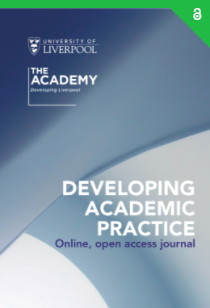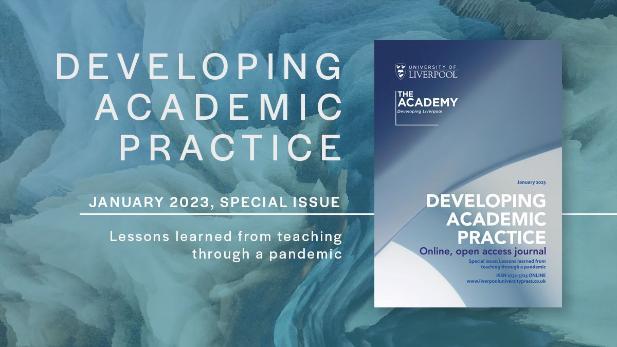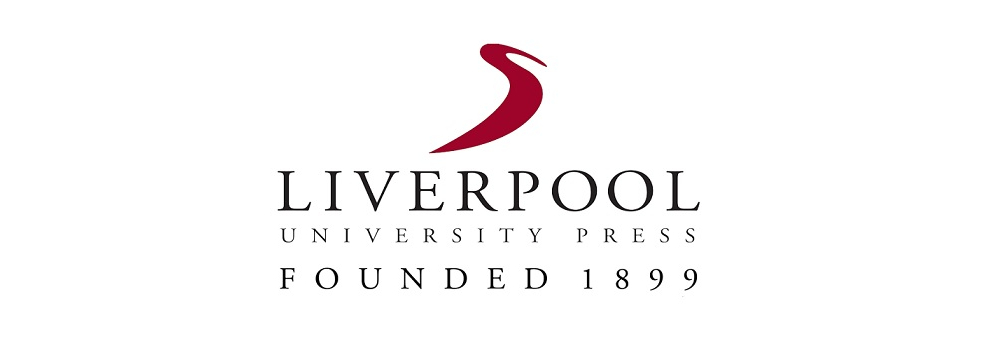
Latest publications
Through this journal, colleagues have the opportunity to contribute articles in relation to hybrid active learning, practice and pedagogies. The journal will become a cornerstone of the University's thriving culture of educational excellence and a vehicle to enhance the work of colleagues across the institution.
Next editions
A list of upcoming editions of Developing Academic Practice inviting contributions is provided below. Our vision is to produce issues that are both readable and practical, so we strongly encourage submissions highlighting innovative practices. Let's work together to make every edition exceptional!
- Spring 2026 - AI in Education (in press, no further submissions accepted)
- Summer 2026 - Authentic Assessment in the Digital Era (submissions invited from Feb 2026 till end March 2026)
- Autumn 2026 - Multidisciplinary Perspectives in Higher Education (collection of manuscripts concerning different topics)
- Winter 2026/27 - Embedding Curriculum 2027 into Pedagogical Practice (submissions invited from June 2026 till end July 2026)
- Spring 2027 - Multidisciplinary Perspectives in Higher Education (collection of manuscripts concerning different topics)
- Summer 27 - International Engagement and Widening Participation (submissions invited from November 2026 till end December 2026)
Each edition will feature up to 8 to 10 manuscripts. We strongly encourage authors to submit both reflections and case studies.

Invitation to contribute
The Developing Academic Practice Journal invites contributions for future publications in the areas of:
- Developing academic practice
- Developing academic leadership
- Innovation in education.
Possible areas to be addressed include, but are not limited to:
- Engaging students in the virtual classroom
- Innovative assessment and feedback methods
- Ideologies, dominant assumptions and grand narratives in scholarship and professional development
- Engagement, impact and the evaluation of scholarship
- Digital education/technology-enhanced learning
- Values, ethics and critiques of education practice
- Learning and teaching philosophies in education
- Policy development in higher education and entrepreneurship
- Inclusive education.
The Editors welcome submissions which can take one of the following formats:
- Reflective articles: up to 1,000 words, excluding references
- Case studies: up to 2,000 words, excluding references
- Research papers: up to 5,000 words excluding references
Developing Academic Practice is a continuous publication. If you have work that you would like to be considered for the journal, please submit your paper and abstract via our manuscript processing platform (ScholarOne Manuscripts). To access ScholarOne Manuscripts you will need to create a user account. A guide and FAQs are also available.
- Guidelines for authors 2026 (PDF, 269KB)
- Guide for Reviewers DAP (DOCX, 30KB)
Templates
- DAP template 2026 - Case study communication article, maximum 7 pages (DOCX, 41KB)
- DAP template 2026 - Full paper, maximum 10 pages (DOCX, 43KB)
- DAP template 2026 - Reflective article, maximum 4 pages (DOCX, 35KB)
Back to: Academic Development
